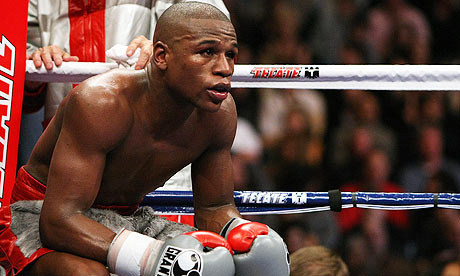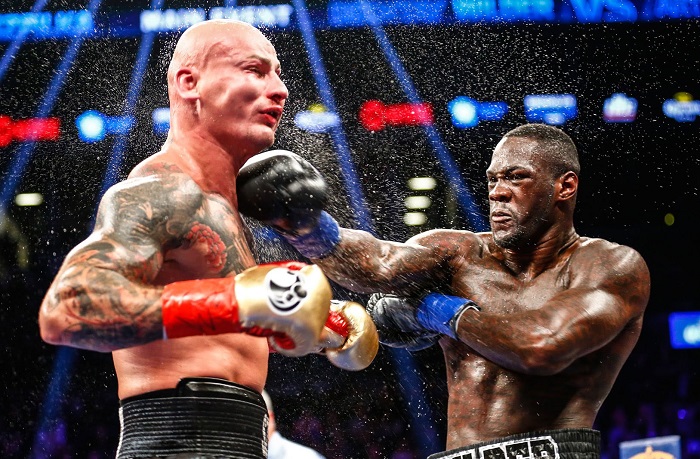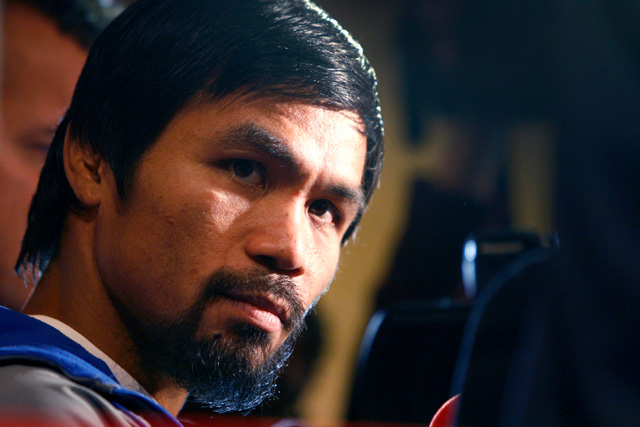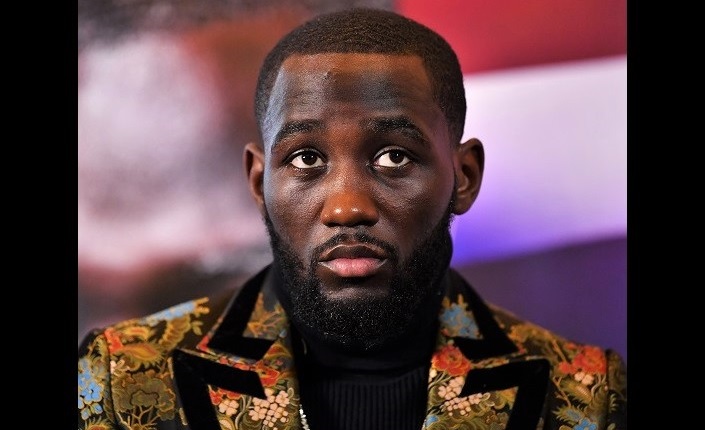Why a Floyd Mayweather Defeat Would Be Good For Boxing
 The excitement building for this Saturday’s big fight, “The One,” is reflected in its title. The electricity has been sparked by the general consensus that this is the match, “the one” everyone was clamoring for, a rare confrontation between two of the very best gladiators the sport has to offer. For years many criticized Floyd Mayweather Jr. for hand-picking his opponents and for ducking Manny Pacquiao. He has largely silenced those criticisms by taking on, arguably, the toughest opponent currently available to him, a younger, bigger, undefeated and more powerful fighter and thus, ostensibly, the top candidate to finally end Mayweather’s winning streak.
The excitement building for this Saturday’s big fight, “The One,” is reflected in its title. The electricity has been sparked by the general consensus that this is the match, “the one” everyone was clamoring for, a rare confrontation between two of the very best gladiators the sport has to offer. For years many criticized Floyd Mayweather Jr. for hand-picking his opponents and for ducking Manny Pacquiao. He has largely silenced those criticisms by taking on, arguably, the toughest opponent currently available to him, a younger, bigger, undefeated and more powerful fighter and thus, ostensibly, the top candidate to finally end Mayweather’s winning streak.
Most boxing experts don’t think it will happen. They see no signs of slippage in Mayweather’s game — an extraordinary fact given Floyd is pushing 37 years of age — and while Alvarez has put together an impressive win streak of his own, he has yet to face anyone in the same league in terms of talent and experience as the current pound-for-pound king. (A washed-up Shane Mosley doesn’t count.) The closest Canelo has come to meeting an opponent of Mayweather’s quality was in his last outing, a highly competitive points win over Austin Trout, though most objected to that bout’s lopsided scoring and some thought the wrong man got the decision. Whatever one’s opinion of the verdict, Canelo in no way dominated Trout. And yet no one in their right mind would argue that Austin Trout is on the same level as Mayweather in terms of skill and ring-smarts.
Despite this, Alvarez is a very live underdog heading into Saturday night. The current odds are 2.5 to 1 against the challenger notching a monumental win, surprisingly short considering the slimness of Canelo’s resumé. At this point the juice is on full blast. Alvarez received an extremely enthusiastic welcome at his “Grand Arrival” at the MGM Grand and one can expect a huge turnout in his favor at Friday’s weigh-in.
As was the case in Mayweather’s last bout against Robert Guerrero, the excitement is all predicated on the idea that this opponent is “the one” and that, more than any other challenger in the past, he has a serious chance to beat the unbeatable. Mayweather’s people understand this is the bout’s draw and it’s why they go out of their way to hype the contest as a dangerous match for Mayweather and to credit Alvarez as, pound-for-pound, the best fighter in the sport after Floyd, a piece of fiction which nicely fills out the necessary story-line.

But underneath the surface, perhaps there’s a bit more to the slightly out-of-proportion enthusiasm for the unproven challenger. Maybe it’s more than just people wanting to see the arrogant “Pretty Boy” finally lose. Maybe it’s more than just the universal interest in seeing perfection finally marred. Perhaps the reason why many gave Guerrero a serious chance to beat Mayweather, and why now so many are hoping Alvarez can pull off the upset, has to do with a pent-up desire for new blood and new narratives, a yearning for change.
As the numbers tell us, boxing is far from dead. Millions tune in to watch the best match-ups and the sport has been enjoying a long streak of exciting, all-action clashes, from the fourth Pacquiao-Marquez bout, to the Rios-Alvarado slugfests, to the Timothy Bradley-Ruslan Provodnikov war, to the Froch-Kessler rematch, to just about every Marcos Maidana fight.
Despite the tired refrain that boxing is on its way out, the sport’s appeal is undeniable and despite a moribund heavyweight division, interest appears to be rising. Add in a crop of potential new stars — think Gennady Golovkin, Mikey Garcia, Adrien Broner, Lucas Matthysse, Sergey Kovalev, Adonis Stevenson and, of course, Alvarez — and boxing may be poised for another golden era, a time when the sport’s headlines spill over into the mainstream and boxers once again appear on the cover of Sports Illustrated.
But something is missing. The same attention spans now responding to what boxing has to offer also naturally crave new stories and new intrigue. The simple fact is, boxing’s biggest star essentially has no story-line, no gravitas. He offers little intrigue, no alluring questions, and very little mass appeal. Is he a star, a celebrity? Obviously. But if he retired, how many would miss him? His fights are huge attractions for the simple fact he is clearly the best and his each and every outing is therefore an event, a happening. But the best in almost any sport will always be a major attraction. For boxing to return to the glory days of the ’70s and ’80s, we need more from the sport’s biggest name than an undefeated record and a well-worn bad-guy act.

This is where Floyd overvalues both his own appeal and his precious ‘0’. Four years ago, Manny Pacquiao might have been Joe Frazier to Mayweather’s Ali, Duran to Mayweather’s Ray Leonard, and the result would have been even greater interest in Floyd as a person, even bigger paydays, and a much deeper footprint in sports history.
Assuming for a moment both that Manny Pacquiao was able to hand Mayweather his first defeat, and that the match yielded a truly thrilling and dramatic confrontation (granted, two rather large assumptions), new questions and new stories would have emerged and fresh elements of Floyd’s character and personality would have been revealed. Both men’s stature would have been enhanced and boxing would have profited handsomely from this latest saga added to its rich history. Mayweather’s undefeated record would be gone, but how many would care? Losses create new drama and lead to rematches and trilogies, not to mention sympathy, and can also deepen and ennoble an athlete’s persona. Here’s betting that losing to Pacquiao, and becoming more human in the process, would have enabled Floyd to eventually assume even larger proportions in the mainstream media and to secure the major sponsorship deals which elude him today.
The simple fact is, Floyd Mayweather’s undefeated record has become the most tedious story in boxing. Which is why so many want to see it finally end. The reason people, who otherwise wouldn’t spend ten cents to watch Robert Guerrero perform, suddenly took an interest in him was because a buzz (albeit, a minor one) was successfully generated that maybe, just maybe, here was the guy who could finally do it, who could overwhelm an aging Floyd with his courage and aggressive attack. The second the fight was over, Guerrero was relegated to yesterday’s news. The same will happen to Alvarez, at least as far as mainstream U.S. interest is concerned, should Mayweather once again completely dominate an opponent who is, supposedly, a very serious challenge.
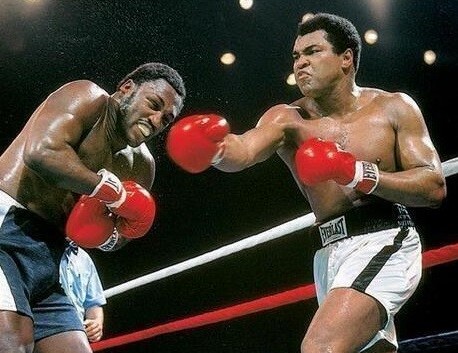
And needless to say, this is not good for boxing. A series of ho-hum mega-fights whose hype and buzz is drastically out of proportion to their actual competition level and entertainment value does not inspire new interest or help new fans understand boxing’s timeless appeal. More to the point, the fact this plot-line keeps working to generate big audiences and big returns actually reflects the public’s desire for something new.
What would be good for the sport is if the young Saul does in fact find a way to put Mayweather in a posture he’s rarely been in before: hurt, desperate, and unable to assume control. And then to go on and give Mayweather, and boxing, the greatest gift, a wonderful opportunity for change and growth: defeat. Will fight fans weep if this happens? Hardly. Instead it will be like a large window being opened onto an arid and air-tight room, allowing a cool breeze to rejuvenate the sport and stir up fresh possibilities.
Lose, Floyd. Please just lose. And let boxing, and you, move on. — Michael Carbert

